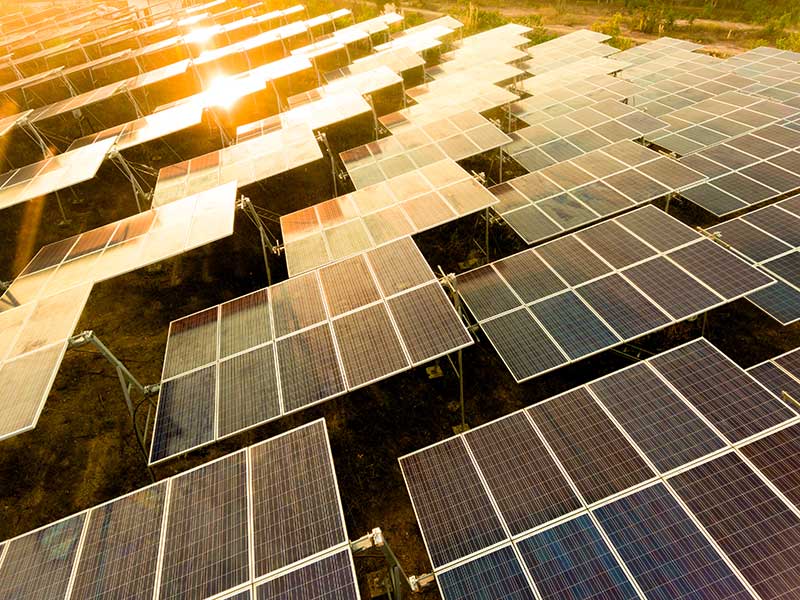A ban on the dumping of end-of-life solar panels in landfill is among 33 proposals being considered in the Queensland government’s e-products draft action plan, which seeks to maximise waste reduction and sustainability of e-products.
Alongside the draft plan, $250,000 is being committed for a pilot industry-led Solar Stewardship Scheme led by industry body the Smart Energy Council.

The scheme will initially identify participants and locations that can recover useful materials from end-of-life solar panels, while circular economy services provider The Activ Group will develop a system to monitor the volume and locations of recovered material.
The second stage of the pilot will involve on-ground collection, recovery, and recycling of panels, targeting rooftop installations.
Smart Energy Council acting chief executive Wayne Smith said the industry body will establish a Solar Stewardship Scheme Consultative Committee – to meet on a monthly basis – which will be comprised of “solar PV manufacturers, distributors, retailers, installers and certificate traders; recycling companies; regulators; local councils and Queensland government representatives”.
“Queensland is not only the sunshine state, but it’s also the solar state and soon it will be the solar recycling state,” Mr Smith said.
Measured by weight, solar photovoltaic (PV) and battery storage equipment are the most common e-products entering Queensland every year, according to the draft plan. However, the waste from these products was around one percent of Queensland’s e-waste in 2019.
From 2019 to 2030, the state government expects waste from solar PV and battery storage equipment to rise from 951 tonnes to around 17,000 tonnes. Currently, all waste from solar PV and battery equipment and other small equipment waste goes to landfill, and almost all lighting equipment waste.
The proposed ban on solar panels entering landfill would also extend to broader electrical and electronic equipment “where industry-funded product stewardship schemes are in place and available”, according to the plan.
Queensland is the state or territory with the highest number of solar installations, according to a report produced by CSIRO in December 2022. Given the high uptake of solar panels in the state, Queensland’s Environment and Science minister Meaghan Scanlon said it is important to have plans to deal with the end-of-life.
“We’ve seen industry is keen to get involved, now it’s just a case of how – which is where the pilot led by the Smart Energy Council and Activ Group comes in,” she said
“The purpose of the project is to help us understand the best way to encourage and incentivise higher quality recovery opportunities to deliver great outcomes, with an initial key focus on regional Queensland.”
The 10-year action plan, released on Sunday, is a part of the state government’s wider $1.1 billion Recycling and Jobs Fund. The waste from several other e-products such as mobile phones, tv and computing equipment, and large household appliances, is also covered by the action plan.
The Ewaste Watch Institute, a circular economy not-for-profit, co-designed the draft e-products plan.
The plan proposes 33 actions, which includes introducing product stewardship and circular economy requirements for government procurement as well as a market development program for e-products, focusing on recovered materials from e-waste.
There are three goals underpinning the action plan:
- extend the life of e-products (production and consumption product life cycle stages)
- recover more materials and keep them circulating in the economy (post-consumption)
- guide and enable stakeholders to maximise waste reduction and sustainability outcomes for e-products
More broadly, the Queensland government is committed to diverting 80 per cent of waste from landfill by 2030.
Consultation on the draft action plan will close on April 17.
Do you know more? Contact James Riley via Email.

